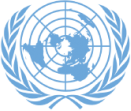Statement by His Excellency Mr. Amrit Bahadur Rai, Permanent Representative and Ambassador of Nepal to the United Nations, at the General Debate of the Second Committee of the 76th Session the United Nations General Assembly
Tuesday, 6 October 2021
Time Limit: 6 Minutes
Madam Chair,
I congratulate you upon your election as Chair of the Second Committee, and other members of the Bureau on their elections.
My delegation assures you of our full support and cooperation throughout the session.
I align my statement with those delivered by Guinea on behalf of the Group of 77 and China, by Malawi on behalf of the LDCs, and by Kazakhstan on behalf of the LLDCs.
Madam Chair,
We are convening at a turning point in history.
The COVID-19 pandemic shattered millions of lives, devastated the health system, economies and livelihoods.
The Global economy plunged into the deepest recession since the Second World War.
Poverty, food insecurity and unemployment are increasing; inequalities within and among nations are deepening.
Compounding these problems, the pandemic is still ravaging the world. In such a dire situation, humanity’s very future depends on solidarity, cooperation and coordination at a global level.
This is a moment that we the peoples of the United Nations must work together and collaborate as never before to liberate humanity from the death warrant of virus.
For this, we must ensure access to COVID-19 vaccines to everyone, everywhere, plain and simple.
This is the only pathway to fight the virus.
Madam Chair,
The current crisis reminded us to accelerate the achievement of SDGs.
Even before the pandemic, our progress towards SDGs was not on track. The pandemic further changed the whole story and the landscape of Decade of Action for SDGs implementation.
The hardest hit are the countries in special situations - LDCs, LLDCs and SIDs.
The pandemic has intensified their pre-existing challenges, brought economies to a standstill, and threatened to reverse their hard-earned development gains.
The gaps that the pandemic has widened and the incidence of further marginalization of vulnerable countries must be overcome through strong partnerships at the regional and global levels.
At a time when the fiscal resource of LDCs has dried-up and there is only a limited space to mobilize domestic revenue, we need scaling up ODA, FDI, aid for trade, adequate climate fund, rechanneling of SDR as well as debt suspension and cancellation.
The initiatives taken by G20, development partners and international financial institutions in response to COVID-19 are good indicators. Yet, this is far from enough; we need to do more to rebuild our society, which is resilient, prosperous and sustainable.
Madam Chair,
The existential threat of climate change has remained unabated.
Recently released IPCC report on climate change warned us that unless there are immediate actions from large emitters, limiting global warming to 1.5° C would be beyond our reach.
The great irony of climate injustice is the bearing of the worst suffering by the poorest and the most vulnerable countries despite their negligible share in GHG emissions.
Time is now to ensure climate justice for those who are less responsible for GHG emissions.
Nepal is among the most climate vulnerable countries despite its negligible emission. We have submitted our ambitious second NDC in 2020 with a plan to reach net zero by 2050 to contribute to limiting global warming to 1.5 degrees as agreed in the Parish Agreement.
The implementation of our net-zero plan would cost 28 billion US dollars. We are in need of adequate, accessible, and predictable climate finance from our development partners and the international community.
Adequate technology transfer is equally important to meet our climate needs.
To this end, early implementation of the Paris Agreement and raising ambition in mitigation, finance, and adaptation by all is a must. The best way forward is science, solutions and solidarity at global level.
Madam Chair,
Digital technology holds promises as well as risks in this globalized world.
In the same way that it can be a vehicle to achieve SDGs, it can also be a weapon of misinformation, hate speech, and violent extremism.
In this age of digital revolution, closing the digital divide is a matter of urgency; we must avoid creating a new class of ‘digital-poor’ by ensuring a safe, equitable and open digital future mainly to those who are at the bottom rung of development.
Madam Chair,
If ever there was a moment to turn things around, to reset our economy, to re-imagine and create a more equitable, just and sustainable world for our people and our planet, that moment is now.
Together, we can turn things around.
Together, we can recover better and build a healthier, fairer, prosperous yet sustainable future for all.
I thank you for your attention!


